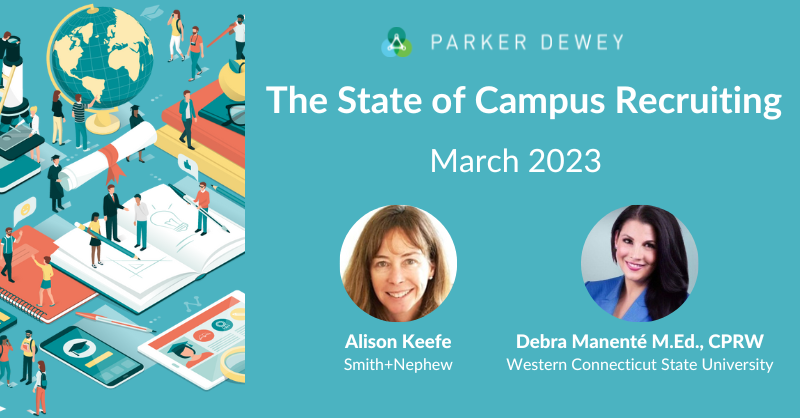.png)
What Students and Recent Grads Want From Recruiting Experiences
Last fall, we asked students how they want to virtually engage with companies. More than 86% rated “real work experience” as their preferred method of engagement with employers.
Meanwhile, barely half of college students and recent grads were interested in engaging in virtual career fairs, information sessions, or employer websites.
This data is clear, and it's still applicable in 2021. Simply switching your tried-and-true in-person strategy to virtual methods won’t cut it. Focusing solely on your company’s branding won’t cut it. Trying to attract talent with an abundance of career fairs won’t cut it.
What potential candidates value right now are pathways for versatile engagement with your organization to get to know you on more than an introductory level. They’re hungry to find the right job and learn more about your company—and what better way to help them understand the day-to-day, culture, and style of your business than through experiential recruiting?
Jeffrey Moss, Founder and CEO
Articles of the Week
Why durable skills are the next big thing - eSchool News
Skills Are Great — But It’s Who You Know That Lands You a Job - EdSurge
Not Enough Workers: Rethink Recruiting in the New Economy - Josh Bersin
Identify — and Hire — Lifelong Learners - Harvard Business Review
Why durable skills are the next big thing - eSchool News
“Fact: Every job in every sector will require soft skills. These soft skills include what many call durable skills—professional and personal competencies that span a person’s career—and they are requested in job postings much more frequently than hard skills.”
We’ve said it before: Soft skills are core skills. A new report from America Succeeds, a student success nonprofit, reiterates the high value of those crucial soft, or “durable” skills—and just how widely they’re in demand. Check out this eSchool article for a breakdown of the report. (What’s more: The skills highlighted in this report align closely those listed in Parker Dewey’s 2021 top skills list. See the related reading below!)
Related reading: 2021 Top Skills Across Entry-Level Roles
Skills Are Great — But It’s Who You Know That Lands You a Job - EdSurge
“The inconvenient truth is that skills and jobs aren’t one and the same…Social networks and relationships function as something of an unspoken currency in the world of work. An estimated half of all jobs come through personal connections. And even earlier in the educational pipeline, students’ networks are proven to shape their career ambitions.”
The Biden-Harris Administration is making plans to equip those from underserved communities with “ready access to the skills they will need to succeed.” But are skills alone enough? This article calls for reimagining network-building as a more accessible practice. And the strategies laid out—like “experiment[ing] with shorter, small-scale work experience"—echo our practices at Parker Dewey.
Related reading: How Will You Close the Equity Gap?
Not Enough Workers: Rethink Recruiting in the New Economy - Josh Bersin
“Companies must diversify recruitment efforts and go beyond the ‘straight-A college grad’ hire...For decades we’ve known that pedigree is not the secret of success. Companies are now hiring people regardless of degree and investing money in development to bring them along.”
A year ago, the notion of having more jobs than workers would have sounded unfathomable. But now, as the pandemic begins to wind down, companies will need to reevaluate their recruiting practices—against the backdrop of a labor shortage. This article lays out strategies for diversifying your recruitment efforts, an explanation for the shrinking workforce, and why your future employees will likely want to negotiate with you.
Related reading: The Future of Campus Recruiting
Identify — and Hire — Lifelong Learners - Harvard Business Review
“Lifelong learning is now roundly considered to be an economic imperative and ‘the only sustainable competitive advantage.’ Job candidates and employees who consider, update, and improve their skills are the high performers, especially over the longer term. Pressing ourselves on the question of how we learn brings a hard, pragmatic edge to the important but nebulous notion of growth mindset.”
Does the “How do you learn?” question make its way into your hiring or performance management processes? If not, it might be time to incorporate it: This particular question has the potential to shed light on an “individual’s personal system for updating, improving, and sharing her knowledge and skills.” (A Micro-Internship is a great opportunity to not only ask the question of how someone learns, but also to see it firsthand!)
Related reading: How professional experiences support post-graduation success
For more stories and insights on HR, recruiting, and diversity, click here to subscribe to our weekly newsletter Hire Learnings.


-1.png)
-1.png)
